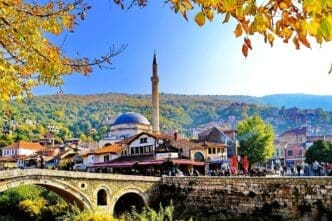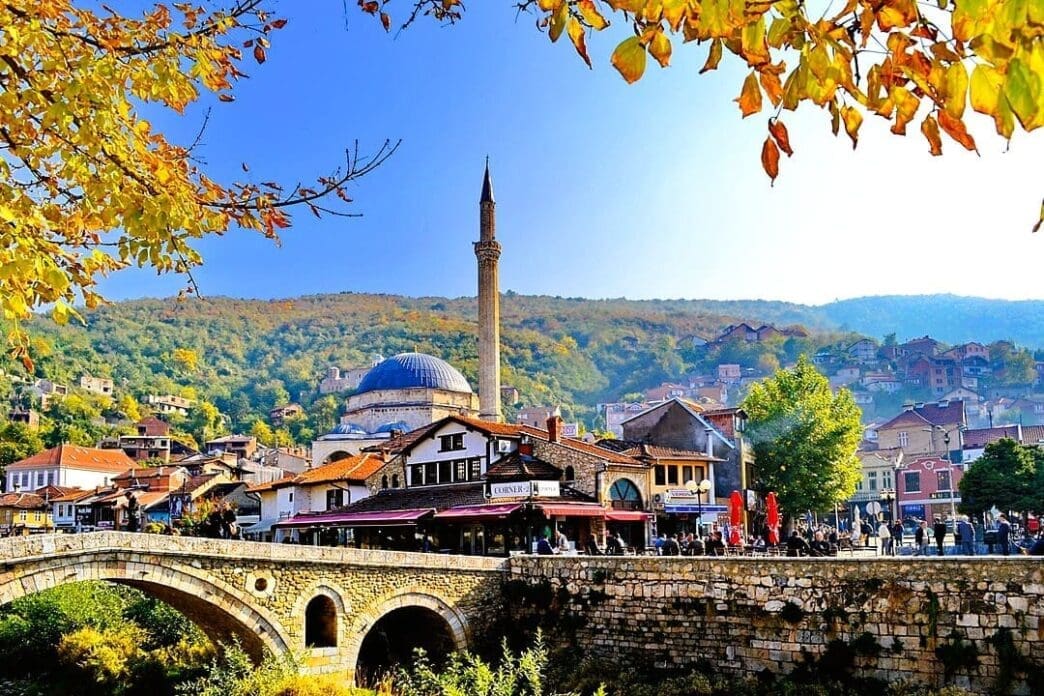In a critical moment for Kosovo’s political landscape, citizens headed to the polls on Sunday in parliamentary elections, a significant test for Prime Minister Albin Kurti. His party, which secured a landslide victory four years ago, now faces the challenge of leading efforts towards normalizing relations with Serbia—a task that has seen little progress recently.
This election marks the first complete four-year term for Kosovo’s parliament since its declaration of independence in 2008. It is also the ninth parliamentary election since the end of the 1998-1999 conflict, which saw ethnic Albanian separatists, supported by a NATO air campaign, push Serbian forces out of Kosovo. Despite Kosovo proclaiming independence in 2008, Serbia continues to reject this status.
Over two million eligible voters were called to participate in the election, choosing from nearly 600 candidates across 27 political groups. Additionally, there is an independent candidate in the fray. The parliament of Kosovo holds 120 seats, 20 of which are reserved for minorities, including ten for the Serbian minority, irrespective of the election outcomes.
Polling commenced at 6:00 AM and concluded at 6:00 PM on Sunday. Notably, Kosovo citizens living abroad were able to vote in person starting Saturday, casting their ballots at 43 diplomatic missions worldwide. This diaspora participation included around 20,000 voters out of approximately 100,000 expatriates who opted either for in-person or mail-in voting.
While Kurti’s leftist Self-Determination Movement is favored to win, it is uncertain if it will secure the majority needed to govern independently. This uncertainty opens the door for potential coalitions in the event he cannot form a government. The main contenders include the Democratic Party of Kosovo (PDK), whose leading figures face war crime allegations at The Hague, and the Democratic League of Kosovo (LDK), which has seen a decline in support since the 2006 death of its leader Ibrahim Rugova.
Parties have been making ambitious pledges to enhance public wages, pensions, education, health services, and combat poverty. However, they have not clarified the funding sources for these initiatives or how they plan to attract more foreign investments. As one of Europe’s poorest countries, Kosovo’s economic reality remains stark, with a GDP per capita of less than 6,000 euros.
Kurti has previously clashed with Western powers over certain cabinet actions, such as banning Serbian dinars and blocking financial transfers from Serbia to Kosovo’s Serbian minority reliant on Belgrade’s social services. This has led to appeals from Washington, Brussels, and NATO-led KFOR for Pristina to avoid one-sided measures that could incite ethnic tensions. The EU paused funding for some projects nearly two years ago, contingent on Kosovo’s efforts to de-escalate tensions in the Serbian-majority north. Similarly, the U.S. Agency for International Development imposed a 90-day funding freeze on several initiatives, crucial for Kosovo’s development.
To ensure the integrity of the electoral process, the EU deployed 100 observers, alongside 18 from the Council of Europe and about 1,600 monitors from various international and local organizations. Additionally, KFOR bolstered its presence to maintain peace and order during the election period.
The outcome of Kosovo’s parliamentary elections will be pivotal in determining the country’s ability to negotiate normalized relations with Serbia. As the voting results are anticipated, the leadership landscape remains uncertain, with potential challenges and coalition dynamics on the horizon for Prime Minister Albin Kurti.








